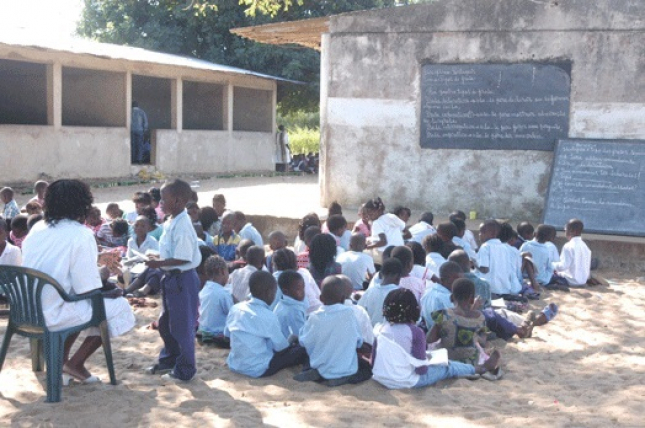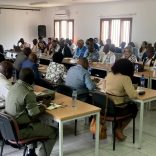Mozambique: Cabo Delgado needs $1.2M to tackle rainy season impacts - INGD
Mozambique: World Bank allocates US$13 million for resilient school buildings

Photo: RM
The World Bank will fund the reconstruction of classrooms, toilets and administrative blocks at 1,400 schools in Nampula, Niassa and Zambézia provinces, as part of a three-year project budgeted at US$13 million.
This amount forms part of the US$40 million that the World Bank has allocated to Mozambique for water and sanitation, including the construction of dams and reservoirs.
A technical seminar of the resilient emergency recovery project organised by the Ministry of Education and Human Development and partners and aimed at government officials, contractors and the public, started on Monday in Anchilo, about ten kilometres from the city of Nampula.
In the last two rainy seasons, the three provinces mentioned were severely affected by rain, winds and floods, which damaged hundreds of classrooms made of conventional and mixed material.
The head of the United Nations Human Settlements Program (UN-HABITAT) in Mozambique, Wild do Rosario, who provided this information to AIM in Nampula, underlined the importance of building and strengthening local capacity to integrate climate change adaptation measures.
“Under the project, UN-HABITAT is providing technical assistance to the education sector in the resilient construction and reconstruction of classrooms using conventional and mixed material,” he said.
According to do Rosario, the aim is to reduce the vulnerability of classrooms to Mozambique’s persistent weather threats, with their recurrent effect on school infrastructure.
At the opening of the seminar, Nampula Provincial Director of Education and Human Development Júlio Mendes explained that the government’s new approach to school infrastructures was important in limiting the destruction caused by climate change as a result of infrastructure defects.
“This new approach is very important. We have to begin to change the way we act, especially when resources are scarce. We will have safer and longer-lasting construction, because there are more and more children in schools who do not study in the environment we wish for.












Leave a Reply
Be the First to Comment!
You must be logged in to post a comment.
You must be logged in to post a comment.